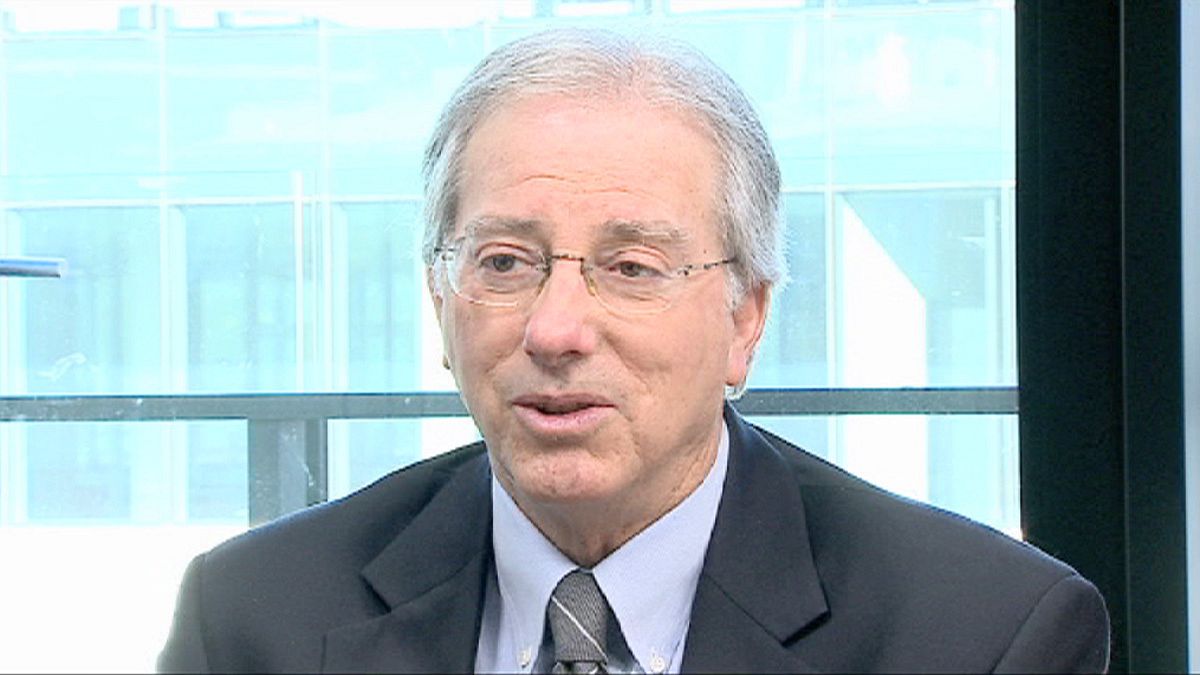Iran’s nuclear saga has taken another turn, as the Deputy Director General of the IAEA declared on his return from Iran on Wednesday, that “Iran is fully committed to resolving all outstanding issues”.
Still, many observers look at this with scepticism. Among them is Dennis Ross, President Obama’s former adviser on Iran and the Middle East who resigned from his post surrounded by controversy in November 2011. Euronews’ Fariba Mavaddat spoke to him on the issue of nuclear weapons in Iran.
Fariba Mavaddat, euronews:
“Dennis Ross, you served three American presidents in the capacity of assistant and consultant on Middle Eastern affairs. What if Iran has the weapon?”
Dennis Ross:
“If Iran has the weapon, then you can bet that their neighbours are going to get the weapon. The idea that a region like the Middle East that is conflict laden, where there are a lot of local triggers for conflict, should now have all sorts of countries with nuclear weapons, is something that is bound to produce a nuclear war.
“This is not the Cold War where there are two countries where there’s some form of communication, where each side, in a sense, can balance out the other. This is a region where you could have a local conflict that easily escalates very quickly.
“These are countries that don’t have perfect communication, they don’t have perfect intelligence you could have false positives. Once you have a Middle East with lots of countries with nuclear weapons, the prospect of a nuclear war goes up very high. That would be a catastrophe for the world.”
euronews: “If sanctions don’t work, would you resort to military action against Iran?”
Dennis Ross:
“It is certainly a possibility. Let me put it this way: If Iran has nuclear weapons you’re going to live to rue the day because you’ll end up with a nuclear war in the Middle East, I think it is to everybody’s interest to avoid that catastrophe.”
euronews: “To what extent, Mr. Ross, has your staunch support for Israel influenced the US administration’s policies on Iran and the Middle East as a whole?”
Dennis Ross:
“I don’t really think that is the point of departure for the administration’s policies on Iran. The administration’s policies on Iran are governed by the fact that Iran is now the subject of six Security Council Resolutions calling on it to comply with its international obligations under the terms of the Nuclear Non-proliferation Treaty (NPT), 11 Board of Governor resolutions of the IAEA to do the same.
“So there’s the reality of Iranian behaviour and having to deal with Iranian behaviour, that is really the touch stone and the point of departure for the administration’s policy, and the kind of support and suggestions that I made in the context of the work I conducted for the administration.”
euronews: “You raised the question of the IAEA reports, now only on Wednesday the Deputy Director General of the IAEA said that: ‘Iran is fully committed to resolving all outstanding issues.’ So there is very little excuse for military intervention.”
Dennis Ross:
”Iran in response to this latest delegation, has committed itself to resolving these questions. That is not the same as resolving them. If the Iranians resolve the questions that will make everyone happy.”
euronews: “Is it possible that the West or America is using this Iranian half-baked nuclear programme as an excuse to undermine Iran’s power and influence in the region?”
Dennis Ross:
“This is not the US versus Iran; this is not some Europeans versus Iran; this is the international community versus Iran. Iran is a country that ought to have certain standing in the world. The fact that it doesn’t is due to the function of and behaviour of the Iranian government. They can change that.”
euronews: “To what extent is your opinion against Iran and your conviction to military intervention in Iran influenced by your sympathy for Israel?”
Dennis Ross:
“I favoured the idea of trying to resolve this through diplomatic means.”
euronews: “You are losing your weight by trying to impose sanctions that have never worked, and will never work…and then what?”
Dennis Ross:
”You have the premise that sanctions have never worked. I am not so sure that sanctions have never worked when you look at them historically.”
euronews: “Iran has been under US sanctions for 35 years and it’s become more powerful, more and more influential and richer.”
Dennis Ross:
”The sanctions that are being imposed now are dramatically different than the sanctions that were been imposed before. The fact that you have seen the Iranian currency has devalued by half in the last six weeks, is something that indicates that the Iranians for the first time, the Iranian government for the first time, will see that they cannot have their cake and eat it too. They have to make a choice.”
euronews: “Let’s imagine that Iran is after nuclear weapons. What is big deal? Pakistan has it. Why not Iran?”
Dennis Ross:
“A country that engages in terrorism, a country that does not comply with responsibilities, is hardly hardly a country that ought to have nuclear weapons”
euronews: “What do you mean by ‘responsibilities’?”
Dennis Ross:
“I mean by ‘responsibilities’ that they have obligations under the terms of a treaty which they continue to evade. Again, I come back, we are not inventing the idea that there are six Security Council Resolutions that call them, I’m not not inventing the 11 Board of Governor Resolutions of the IAEA. How can it be that the international community is wrong and Iran is right?”
